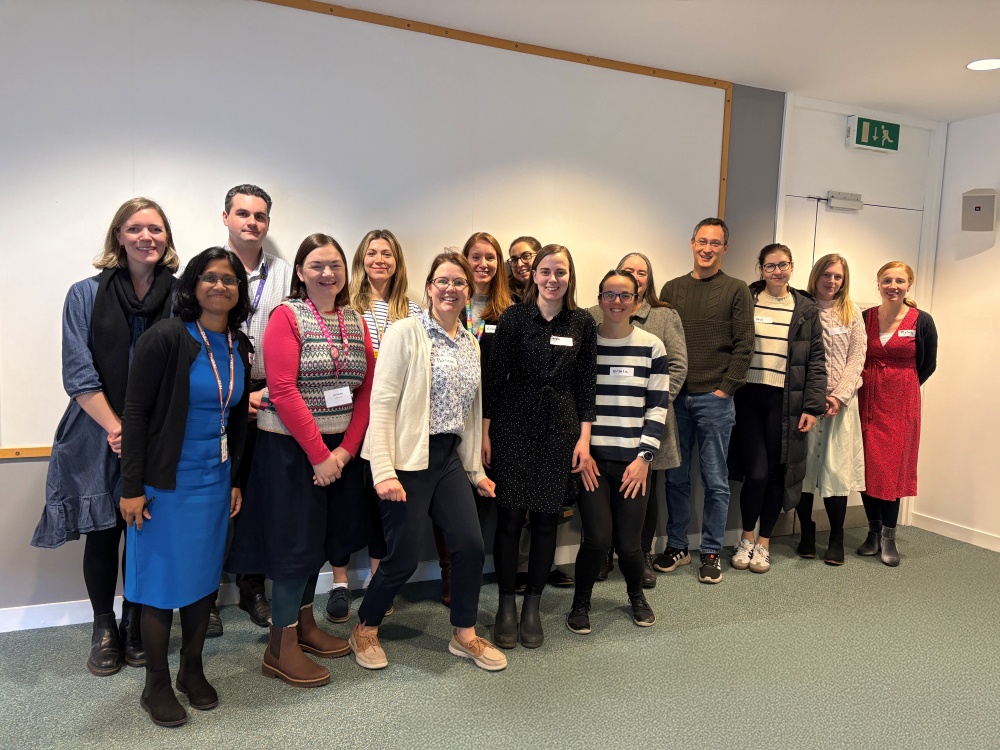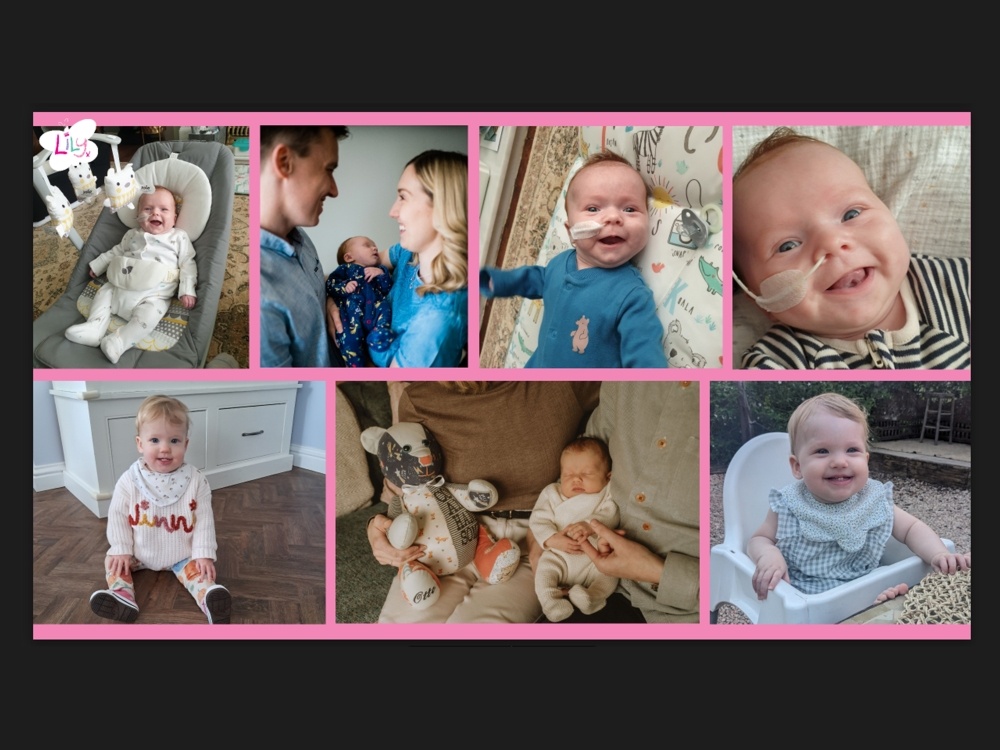Hosted by the Northern Genetics Service, the training day in Newcastle brought together registrars from Newcastle, Edinburgh, Leeds and Sheffield to focus on mitochondrial genetics. It was an opportunity for attendees to deepen their understanding of mitochondrial diseases and explore the latest developments in research, diagnosis and treatment.
Katie provided an overview of our work supporting families affected by mitochondrial disease before Ami delivered a moving talk via videolink. Ami bravely shared her personal story of losing her baby son, Otto, to mitochondrial disease, including the challenges of his misdiagnosis, the journey to his end-of-life care and finding hope through connecting with The Lily Foundation.
Ami explained that she and her husband Danny still don’t have a genetic diagnosis for Otto, which naturally has impacted their future reproductive options. Whilst they look back with sadness at the loss of Otto, they can also look forward with hope as they now cherish a healthy baby daughter, Winnie, who was born via egg donation.
The importance of collaboration and compassion
At the start of the day, event organiser Dr Patricia Wells had emphasised the importance of families in shaping the work of genetic clinicians. Katie and Ami reminded everyone present that behind every mitochondrial disease diagnosis is a family and a story. Clinical knowledge is vital, but compassion is too.
The day prompted clinicians to reflect on their own practices in the following ways:
- How could they deliver difficult news with greater sensitivity?
- Could they simplify genetic information for families without a medical or scientific background?
- How might they bring more compassion to their interactions with patients?
Feedback after the event was overwhelmingly positive, with attendees giving the day an average overall rating of 4.93/5. One attendee explained that “listening to this mother showed me the importance of the language used in discussing test results. She also explained how little she had retained from the discussions of genetics at a fraught time (when her child was very unwell). This reminded me that very little of what we say will be remembered and so to try to be as clear as possible and reinforce any really key points.”
Another registrar found it “thought-provoking in terms of the language used by health professionals and how this is interpreted,” while another in attendance said it was “useful to know about the foundation and the support that they can offer to patients, around and following diagnosis. I will definitely signpost any patients to The Lily Foundation in future.”
And finally, what about the impact on Ami, who so bravely shared her story? Talking about Otto to medical professionals was a very different experience for her. Unlike talking to friends and family – when she’s always been the mito ‘expert’ – this time, she was keen to convey the patient’s perspective. She wanted to show how much of a difference the little things can make, like dressing Otto in his own clothes so he wasn’t just lying in hospital in a nappy, looking like a sick baby instead of himself.
Ami said she’d found it “reassuring to know that Otto’s story has made an impact, particularly around making geneticists more aware of the language they use, what sticks in a family's mind and how their words can be interpreted. Hopefully that will help other families in the future.”
A shared mission
Events like these, bringing together the expertise of medical professionals with the real-life experiences of patients, are crucial in improving care for families affected by mitochondrial disease. The Lily Foundation are proud to support such initiatives, and appreciate being given the opportunity to highlight the work we do in this realm and the vital role the patient voice has to play in shaping the future of genetic care.
If you’d like The Lily Foundation to contribute to your professional training day, or you’d like to learn more about our work, please visit our Support for professionals page or contact [email protected]. Together, we can fight mitochondrial disease and find hope for everyone affected.


